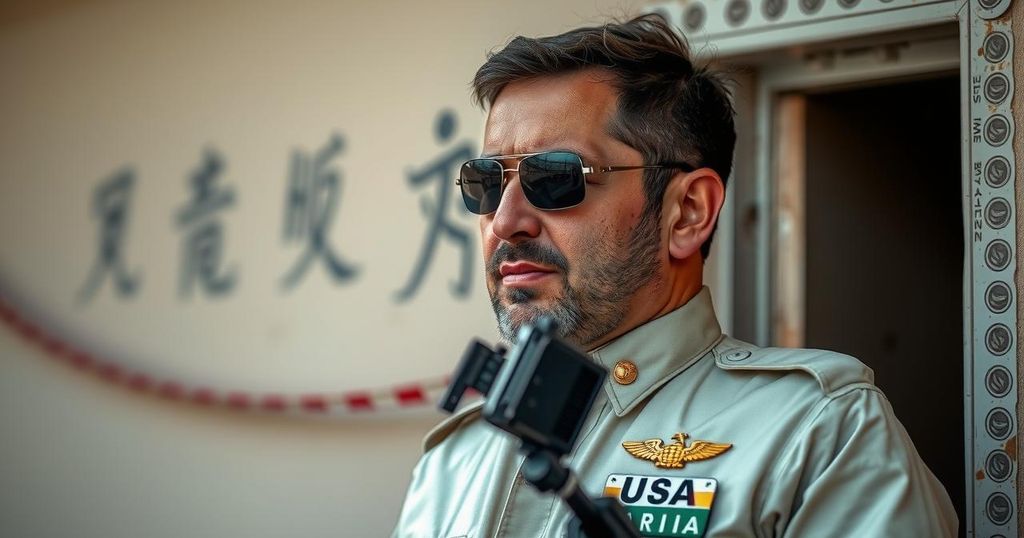Iranian military advisor Kiomars Pourhashemi was killed in Syria by a U.S. infiltrator, according to Iranian officials. Mohammad Jafar Asadi, a senior commander, dismissed claims of Syrian involvement as propaganda. The situation highlights challenges faced by the Syrian army and the significant decline of the National Defense Forces established under General Qasem Soleimani, amid external pressures from the U.S. and Israel.
In a significant development, Mohammad Jafar Asadi, the Deputy Commander of Iran’s Khatam al-Anbiya Central Headquarters, reported that Iranian military advisor Kiomars Pourhashemi was assassinated in Syria due to an infiltrator associated with the United States. Asadi stated, “An American agent was responsible for the martyrdom of our commander in Aleppo,” dismissing claims of a Syrian general’s involvement as mere “Israeli propaganda” intended to sow discord.
Brigadier General Pourhashemi, an integral advisor within the Iranian Revolutionary Guard Corps (IRGC), was killed on November 28 in Aleppo. Initial reports did not provide details about the incident; however, a recent claim from CGTN’s correspondent in Ankara suggested he was killed by a Syrian officer during a meeting, which Asadi firmly denied, reinforcing his assertion of U.S. involvement.
Asadi highlighted the precarious situation faced by the Syrian army, stating, “With the whole world mobilized against them, they barely have food and water.” He also referred to Russia’s struggles in Syria due to the ramifications of the war in Ukraine, noting that their capabilities had been severely hampered. Asadi lamented the lack of accountability in Syria, referencing how any entity can be blamed for acts of violence amid the chaotic environment.
Furthermore, Asadi discussed the impact of the National Defense Forces, which were formed under the leadership of the slain General Qasem Soleimani, emphasizing that despite initial difficulties in recruitment, the force proved invaluable at the time. However, he observed that the force has significantly diminished from 120,000 to 20,000 members due to the contrasting support militant groups received from American and Israeli sources.
Asadi addressed the potential discontent among Syrian patriots regarding the ongoing assaults from Israel, asserting, “The humiliation Israel is imposing on Syria now will surely provoke a response from the proud youth of Syria.” He expressed confidence that Syrian defenders would retaliate against what he described as disgraceful provocations in the future.
The ongoing conflict in Syria has intensified geopolitical tensions, particularly involving Iran, the United States, and various local factions. Iranian military advisors have been actively involved in supporting the Syrian government against insurgent forces. The Iranian Revolutionary Guard Corps (IRGC) plays a crucial role in these operations, and any loss of their personnel is framed within larger narratives of foreign intervention and regional security dynamics. The killing of Iranian advisors often leads to escalated rhetoric and heightened tensions between the involved nations, particularly amid ongoing accusations of American interference in the region.
The assassination of Brigadier General Kiomars Pourhashemi by an alleged American agent has sparked heated discussions regarding foreign involvement in the Syrian conflict. The Iranian government views this incident as part of a broader pattern of U.S. aggression and Israeli propaganda aimed at destabilizing Iran-Syria relations. As tensions mount, Iranian officials have expressed their commitment to responding to perceived threats against their interests in Syria, suggesting a potential for increased conflict in the region.
Original Source: www.tehrantimes.com






